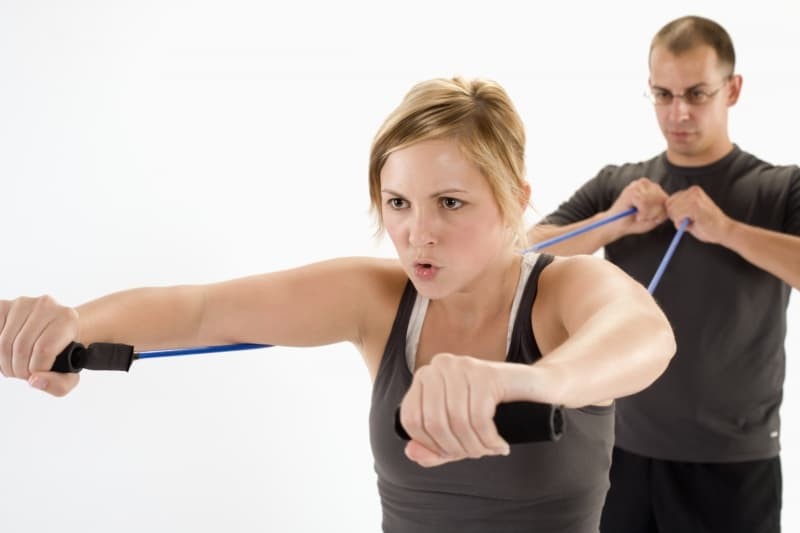
Ever thought you would like to spread your love of health and fitness to a wider group of people, perhaps to disadvantaged communities? Did you know that not-for-profit organisations often require personal trainers as volunteers? Offering individual sessions or group fitness classes to your community is a great way to build a healthy community and develop your skills as a personal trainer. Find out what the benefits of volunteering are and how to get involved.
How Can You Help Others Achieve Their Health and Fitness Goals?
If you are a friendly, enthusiastic and positive person who enjoys helping others, then volunteering for a community or not-for-profit organisation could be a way for you to change people's lives.
The role of exercise cannot be overestimated in improving not only health and fitness, but also of course, mental health. Exercise is a great form of stress relief and when undertaken with another person or in a group, gives people a sense of shared purpose (some would say pain!) and a sense of connection – to their bodies, to other people, and ultimately to life.
Why Volunteer?
As a personal trainer, you act as a coach and role model, and this is even more the case when you volunteer your skills and services. Volunteering is a great way to become more involved in your community, meet new people and help them meet their fitness levels and transform their lives.
With volunteer work, you know that your skills can make a positive impact on other people's lives, as well as help them address specific conditions, such as high blood pressure, by following a specific plan or exercise. By exploring volunteering opportunities with different community organisations, such as Fitness Australia, you will be able to reach out to as many people as possible and help everyone find a specific form of exercise that matches their physical capability.
How Does the Community Benefit From Your Voluntary Initiative?
Strengthening your community by participating in local health and wellness events is a fantastic way to motivate people to keep their bodies performing at their best, while getting your name out there in the process. Below are some fun volunteering opportunities that you should check out:
Activities With Children
Children love participating in both indoor and outdoor events; it doesn't matter where these events take place as long as they get to join. Volunteering to provide free personal training services to children before the competition kicks off ensures child safety and prevents the need for emergency services.
Support Disability Services
According to the Centers for Disease Control and Prevention (CDC), nearly 50% of people with disabilities do not get aerobic exercise, when the body needs at least one hour of exercise to stay in top shape. Providing your personal training services to charities that promote the welfare of people with disabilities can improve the health and quality of life of these individuals by protecting them from heart disease, diabetes, and other conditions that might arise from a lack of physical activity.
Seek Volunteer Opportunities with Other Healthcare Practitioners
Providing free personal training sessions alongside other health professionals at a wellness event will not only encourage the public to prioritise their health and fitness needs, but it can also boost your professional network, broaden your customer reach, and even assist in building future business relationships.
How Does Volunteering Benefit You as a Personal Trainer?
Volunteering reflects the most important qualities of a personal trainer, which are passion, authenticity, professionalism, a good listener, and selflessness. When you devote your energy and enthusiasm to a good cause, you are impacting the lives of those you are helping and moving yourself closer to your dreams. In addition, most successful personal trainers met most of their clients through their volunteer efforts.
Originally published on Mar 21, 2011








